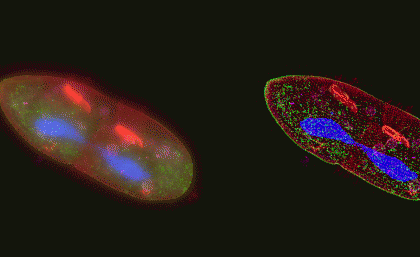
A supercomputer that will speed up research and scientific discovery is being built at The University of Queensland.
The computer – named Wiener after mathematician Norbert Wiener – will be the first outside the United States to use Nvidia Volta, an accelerator chip with superior deep learning experience.
QBI and School of Mathematics and Physics researcher Professor Geoff Goodhill said Wiener should be fully operational by February 2018, and would be used to assist research into cancer biology, inflammation, infection and the brain.
“Wiener provides many new research opportunities,” he said.
"It will dramatically increase the speed at which we can derive new insights from experimental data, and will also test new hypotheses about nervous system function."
Magnetic resonance and microscopy imaging could generate terabytes of data in a few minutes, therefore requiring researchers to have unusually high-powered computers.
“Wiener will cut down the processing time that modern scientific imaging requires, and will also have functions to process data in new ways,” Professor Goodhill said.
QBI Senior IT Manager (Research) Jake Carroll said Wiener was developed using “balanced and innovative architecture” and was a logical extension of UQ’s research infrastructure.
"If we want the biggest scientific outcomes that can change the quality of people’s lives, then we must be prepared to push the boundaries, and to maximise the utility and efficiency of our world-class scientific instruments," Mr Carroll said.
Wiener was developed with funding from a variety of UQ areas, including the Centre for Microscopy and Microanalysis.
The project involves UQ’s Queensland Brain Institute (QBI) and Research Computing Centre. Initial pioneering research using Wiener will focus on research at UQ's Institute of Molecular Biology and QBI.
More information is available here.
Media: Carolyn Barry, carolyn.barry@uq.edu.au, +61 7 3346 6416.
.jpg)



